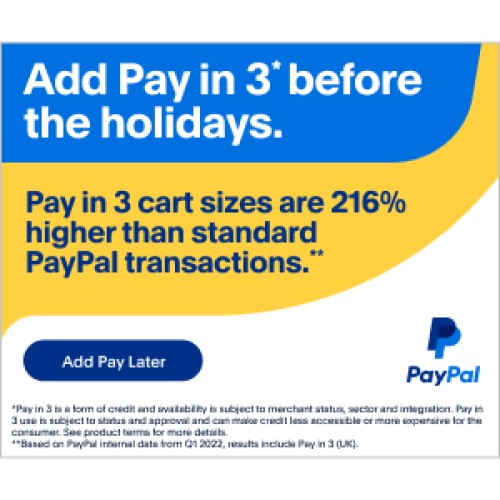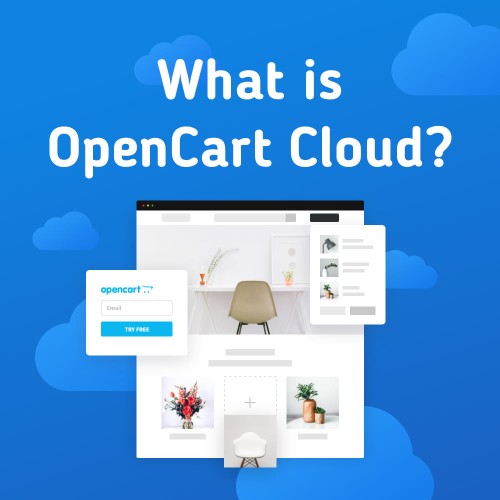In today's digital landscape, ecommerce businesses face fierce competition. With countless online stores vying for the attention of customers, it's crucial to find effective strategies to stand out from the crowd and boost sales. One powerful method to achieve this is by utilizing social proof. In this article, we will explore what social proof is, its significance in ecommerce, and how you can leverage it to drive more sales.
What is Social Proof?
Social proof refers to the psychological phenomenon where people rely on the actions and opinions of others to make decisions, especially when uncertain. In an ecommerce context, social proof is about demonstrating to potential customers that others have had positive experiences with your products or services, thereby instilling trust and confidence.
The Importance of Social Proof in Ecommerce
Social proof is extremely helpful for fashion sites. In the vast sea of online options, customers often look for reassurance before making a purchase. Social proof plays a vital role in building credibility, reducing skepticism, and encouraging conversions. By showcasing social proof, you can create a sense of trust, increase customer confidence, and ultimately drive more sales.
Types of Social Proof
Customer Reviews and Testimonials
One of the most influential forms of social proof is customer reviews and testimonials. Positive reviews act as endorsements from satisfied customers and serve as persuasive content. When shoppers see positive feedback from others who have already purchased and enjoyed your products, they are more likely to trust your brand and make a purchase themselves. You can use free project management software to automate review generation from customers.
2. Social Media Engagement
Social media platforms provide a wealth of opportunities to showcase social proof. High social media engagement metrics such as likes, shares, comments, and followers can demonstrate the popularity and trustworthiness of your brand. By highlighting these social media KPIs, you can create a positive impression and attract more potential customers.
3. Influencer Endorsements
Influencer marketing has become increasingly prevalent in the ecommerce industry. Collaborating with influencers who have a significant following in your niche can help you leverage their social proof to reach a wider audience. When influencers endorse your products or services, their followers are more likely to consider them trustworthy and make a purchase.
4. Expert Opinions and Certifications
Featuring endorsements from industry experts and certifications from reputable organizations can significantly impact customer trust. When customers see that your products or services have received recognition from trusted authorities, they feel more confident in their decision to buy from you. You can schedule meetings through Amelia to make this happen.
5. Trust Seals and Security Badges
In the world of ecommerce, security is a top concern for customers. Displaying trust seals and security badges, such as SSL certificates (plus SSL monitoring to ensure its validity), can reassure customers that their personal information and payment details are safe and secure. This form of social proof builds trust and minimizes any apprehension customers may have about making online transactions.
As per research from Barillance online retailers can lose 75% of their sales to shopping cart abandonment issues.
In 2015, Statista found that 15% sales were lost due to concerns over security. The amount of lost sales due to this reason keeps rising.
That’s how important online security is for sales.
6. User-Generated Content
Encouraging customers to generate content related to your brand, such as photos, videos, or reviews, can be a powerful form of social proof. When potential customers see real people using and enjoying your products, it creates an authentic connection and builds trust in your brand.
7. Social Proof Notifications
Using social proof notifications on your website can create a sense of urgency and FOMO (fear of missing out). For example, displaying real-time notifications about recent purchases or actions taken by other customers, such as "John from New York just bought this item," can motivate potential buyers to make a purchase themselves.
Dune highlights the landing pages on its site and you can also use that space to showcase social proof.
8. Case Studies and Success Stories
Sharing case studies and success stories of customers who have achieved positive outcomes using your products or services can be highly persuasive. When potential customers see tangible results and evidence of your product's effectiveness, it strengthens their confidence in making a purchase.
9. Popularity and Social Followers
Highlighting the number of customers or social media followers you have can serve as social proof. Large numbers indicate popularity and can create a perception of trust and credibility. Customers may be more inclined to buy from a brand that has a substantial customer base or a strong following on social media.
10. Media Mentions
If your brand has received positive coverage in the media, whether it's through press releases, articles, or interviews, it's essential to leverage that social proof. When potential customers see that reputable publications or news outlets have recognized and featured your brand, it boosts your credibility and can drive conversions.
Third-party endorsements can create trust in your customers by showcasing to them your credibility. These programs begin with an application process and review of your site and then granting the badge.
Source:ConversionXL.
The Better Business Burea adds trust to your site. 173 million people search BBB.org for business profiles and check ratings there.
The Google Trusted Store badge is another well-recgonized brand. Google trust seals are more recognized by Gen Y group.
11. Valuable Resources and Guides
Offering insightful and helpful resources like guides, ebooks, or blog posts can act as a form of social proof that positions your brand as an expert and trusted advisor in the industry. These resources can showcase your knowledge and expertise, encouraging trust from potential customers. For instance, if you're a fitness business looking to innovate and attract more clients, TeamUp's fitness business ideas is an excellent resource that demonstrates the brand's expertise and commitment to providing value. For example,Rensup,a site in the home renovation products space publishes long form guides on its products.
All in all this helps you generate BANT qualified leads.
How to Leverage Social Proof for Ecommerce Success
Now that we've explored the various types of social proof, let's delve into how you can effectively leverage them to boost ecommerce sales:
Display Customer Reviews and Testimonials
Make customer reviews and testimonials easily accessible on your website. Feature them prominently on product pages, create a dedicated reviews section, or even use review widgets that display recent positive reviews. Encourage customers to leave reviews by offering incentives or simply asking for feedback after their purchase. If you run a Shopify store there are plenty of social proof apps which help turn your visitors into customers. Milano goes a step ahead and displays user generated photos of its products on the shopping cart for the product that you have in the cart.
To enhance your review collection process and manage customer feedback effectively, you can also explore helpful AI tools that streamline the review management process for your Shopify store.
Showcase Social Media Engagement
To increase the impact of your social media presence, go beyond simply displaying social media icons on your website; leverage the power of social media statistics by prominently displaying compelling statistics, such as the number of followers, likes, and shares, that demonstrate your brand's popularity and credibility among your target audience. Make them seo optimized. Encourage visitors to not only follow and communicate with you on social media platforms such as Instagram, Facebook, and Twitter, but also to harness user-generated content by reposting customer photographs ( some editing such as background removal if necessary) and videos and aggressively encouraging customers to tag your company in their social media postings. This smart approach to social proof will boost your internet visibility and increase sales. You can use social proof top generate more leads or hire one among many b2b lead generation companies in USA.
Use Social Proof Notifications
Social proof notifications, are visual and are a powerful tool to create a sense of urgency and encourage potential customers to take action. By displaying real-time notifications of recent purchases or actions taken by other customers, you can leverage the concept of FOMO (fear of missing out) and drive more sales. These notifications can be in the form of pop-ups, banners, or sidebars on your website for selling some offers.
For example, you can show messages like "Mary from California just purchased this product" or "10 people are currently viewing this item” or “X million event organizers have sold tickets using our service.” By highlighting the demand and activity surrounding your products, you create a perception of popularity and desirability, motivating visitors to make a purchase before they miss out.
Implementing social proof notifications requires integration with your ecommerce platforms and tracking recent customer activities. There are various tools and plugins available that can help you automate and customize these notifications to suit your brand and website design.
You can take these notifications over to social media channels and display them there.
Share Case Studies and Success Stories
Case studies and success stories are compelling forms of social proof that demonstrate real-life examples of how your products or services have benefited customers. By showcasing these stories, you provide concrete evidence of the value and effectiveness of your offerings, instilling trust and confidence in potential buyers.
When sharing case studies and success stories, focus on highlighting the challenges or goals your customers had before using your product, the solutions your product provided, and the positive outcomes they achieved. Include specific metrics, such as increased sales, cost savings, or improved efficiency, to add credibility to the stories.
You can feature these case studies and success stories on your website, in blog posts, or even in email campaigns to prospects you find email addresses for. As part of your content strategy, you can leverage the power of blog writing by incorporating compelling video testimonials or interviews with satisfied customers, as visual content can be highly engaging and persuasive.
Grow Social Followers and Popularity
Having a substantial social media following can be a form of social proof that signals trust and credibility. It shows that people are interested in your brand and actively engage with your content. Growing your social media followers requires a combination of compelling content, active engagement, and strategic promotion.
Focus on creating valuable and shareable content that resonates with your target audience. You can use AI tools to help generate content but remember to check for plagiarism. Encourage followers to engage with your posts through likes, comments, and shares. Respond to comments and messages promptly to foster a sense of community and build stronger connections with your audience.
Promote your social media channels through your website, email newsletters (verify email addresses on your list first), and other marketing channels. Collaborate with influencers or industry partners who can help amplify your brand's reach and attract new followers. Utilize social media advertising to reach a wider audience and gain more visibility.
Leverage Media Mentions
If your brand has been featured in the media, whether through press releases, articles, or interviews, capitalize on these mentions as social proof. Display logos or snippets of media coverage on your website to showcase your brand's credibility and recognition.
Create a dedicated "As Seen In" or "Media Mentions" section on your website, where you can compile and display the logos or quotes from reputable publications. Linking back to the original articles or press releases adds authenticity and allows visitors to verify the media coverage themselves.
Media mentions not only build trust but also increase brand awareness and can attract new customers who may have discovered your brand through these channels. Regularly monitor for new media mentions and update your website accordingly to keep the social proof current and relevant.
Best Practices for Using Social Proof
To effectively utilize social proof in your ecommerce strategy, consider the following best practices:
Authenticity and Transparency
Ensure that the social proof you present is genuine and authentic. Avoid using fake or misleading testimonials or reviews, as this can harm your brand's reputation. Be transparent about any incentives or rewards given for customer feedback or reviews.
What is the most effective type of social proof for ecommerce?
The effectiveness of social proof can vary depending on the nature of your ecommerce business and target audience. However, customer reviews and testimonials tend to be one of the most powerful and influential forms of social proof. Genuine and positive reviews from satisfied customers provide valuable insights and build trust among potential buyers. Seeing others' experiences and opinions can help alleviate doubts and make purchasing decisions easier for new customers.
How can I encourage customers to leave reviews?
Encouraging customers to leave reviews requires a proactive approach. Here are some strategies to consider:
Ask for reviews: Reach out to customers after their purchase and kindly request feedback or reviews. You can send follow-up emails, include review requests in order confirmation pages, or provide incentives like discounts or rewards for leaving reviews. If you are an ecommerce product based company, this strategy is the best. Let’s assume that you sell lockers, you can ask your customers for leaving a review after they use it.
Simplify the process: Make it easy for customers to leave reviews by providing clear instructions and user-friendly review platforms. Streamline the review process by minimizing steps and removing unnecessary barriers. For example, let's say that you run a loan company then you can ask your customers to leave a review on Yelp. It is very easy and quick.
Engage with customers: Respond to existing reviews, whether positive or negative, in a timely and professional manner. Show appreciation for feedback and address any concerns raised by customers. This demonstrates that you value their opinions and encourages others to share their experiences.
Use automated review requests: Utilize email marketing automation to send review requests to customers at specific intervals. A good small business CRM can help you automate and optimize your process for requesting reviews. Automated reminders can prompt customers who may have forgotten to leave a review.
Provide exceptional customer service: By delivering exceptional customer service, you increase the likelihood of positive reviews. Go above and beyond to address customer inquiries, resolve issues promptly, and create a positive experience that customers will want to share.
Is it better to showcase a large number of social media followers or high engagement?
Both a large number of social media followers and high engagement have their benefits. However, the focus should be on quality rather than quantity. High engagement indicates an active and involved audience, showing that your followers are genuinely interested in your content and are more likely to take action.
Having a significant number of followers can also provide social proof, demonstrating that your brand has a wide reach and is trusted by many. However, if your followers are not actively engaging with your content, it may indicate that your audience is less interested or less likely to convert into customers.
Ideally, strive for a balance between a substantial number of followers and meaningful engagement. Aim to cultivate a community of loyal and engaged followers who interact with your posts, share your content, and actively participate in conversations related to your brand.
Can social proof increase conversion rates?
Yes, social proof has been proven to increase conversion rates in ecommerce. When potential customers see positive social proof, such as reviews, testimonials, or social media engagement, it enhances their trust and confidence in your brand. This increased trust leads to a higher likelihood of making a purchase.
Social proof serves as a validation of your products or services and helps to alleviate any concerns or hesitations customers may have. By showcasing the positive experiences of others, you provide reassurance and address the natural skepticism that can arise when shopping online.
To optimize the impact of social proof on conversion rates, strategically place it in key areas of your website, such as product pages, checkout pages, and landing pages. Make it easily visible and ensure it aligns with the customer's journey, addressing specific pain points or objections. You should always consutl with your website designers before you make any changes to your live website. This will reduce the risk of anything going wrong or breaking.
Should I remove negative reviews from my website?
While it may be tempting to remove negative reviews, it is generally not recommended. Negative reviews can actually contribute to the authenticity and credibility of your brand. Customers expect to see a mix of positive and negative feedback, as it reflects the reality of different experiences.
Negative reviews provide an opportunity for you to demonstrate excellent customer service and problem-solving
Conclusion
What do you think of the different aspects of social proof and how they help your business generate more sales? Do let us know in the comments below.



Login and write down your comment.
Login my OpenCart Account